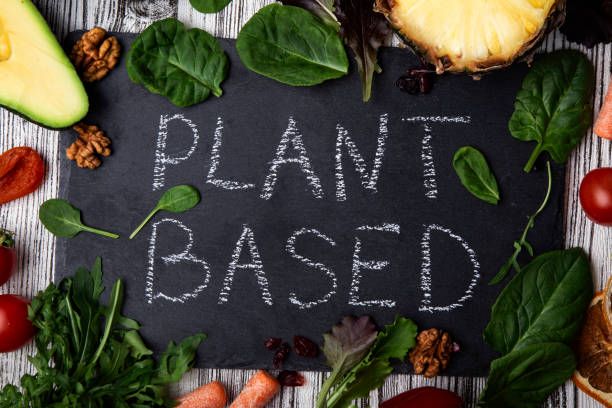Plant-Based vs Organic: What Matters to Consumers?

In today’s health-conscious world, terms like "plant-based" and "organic" dominate food labels, menus, and social media. But what do these labels mean, and why should consumers in Thailand care? At HappyLyfe, we’re here to demystify these trends and help you make informed choices. Whether you curious about what organic food is? or wondering how plant-based food fits into your lifestyle, this guide breaks down the differences, benefits, and how both can play a role in a healthy lifestyle. Let’s explore what truly matters to modern consumers!
Defining the Basics
1. What is Organic Food?
Key Characteristics
- Grown without synthetic pesticides, fertilizers, or GMOs.
- Livestock is raised with organic feed, no antibiotics, and access to outdoor spaces.
Certification Standards
- Look for labels like USDA Organic, EU Organic, or Thailand Organic.
2. What is Plant-Based Food?
Key Characteristics
- Focuses on foods derived from plants: fruits, vegetables, grains, nuts, and legumes.
- May include minimally processed alternatives (e.g., plant-based meat).
Plant-Based ≠ Vegan
- Vegan diets exclude all animal products; plant-based diets prioritize plants but may occasionally include animal products.
Plant-Based vs Organic: Key Differences
Why Consumers Choose Organic Food
1. Benefits of Organic Food in Daily Use
- Fewer Toxins: Avoid pesticide residues linked to health risks.
- Nutrient Density: Higher levels of antioxidants and vitamins in organic produce.
- Safer for Families: Ideal for children and pregnant women due to reduced chemical exposure.
2. Role of Organic Food in a Healthy Lifestyle
- Supports long-term wellness by minimizing intake of synthetic additives.
- Aligns with sustainable living goals, benefiting both personal health and the planet.
Why Consumers Choose Plant-Based Food
1. Health Benefits
- Heart Health: Lower cholesterol and saturated fat intake.
- Digestive Wellness: High fiber content improves gut health.
2. Ethical and Environmental Impact
- Reduce reliance on factory farming and animal exploitation.
- Lowers greenhouse gas emissions compared to meat-heavy diets.
Can You Combine Both?
The Power of Organic Plant-Based Diets
- Maximize Nutrient Intake: Organic veggies and grains offer cleaner, richer nutrition.
- Sustainable Choices: Pairing organic and plant-based reduces chemical use and environmental harm.
HappyLyfe’s Thailand Picks
- Organic Legumes: Lentils, chickpeas, and tofu for protein-packed meals.
- Plant-Based Snacks: Organic nuts, seeds, and dried fruits.
How to Incorporate Organic and Plant-Based Foods
1. Start with Breakfast
- Blend organic spinach, almond milk, and chia seeds for a green smoothie.
2. Meal Prep Smartly
- Batch-cook organic quinoa and roasted veggies for easy plant-based lunches.
3. Snack Consciously
- Choose organic fruit or plant-based energy bars over processed snacks.
4. Support Local Thai Farmers
- Buy organic jackfruit, coconut, and herbs from local markets.
Conclusion
The choice between plant-based and organic isn’t about picking sides—it’s about understanding your priorities. Whether you’re drawn to the benefit of organic food in daily use or the planet-friendly appeal of plant-based meals, both paths offer unique advantages. At HappyLyfe, we celebrate all mindful choices, providing Thailand with premium organic food and plant-based options that nourish your body and respect the Earth. Ready to redefine your plate? Explore our collections and discover how easy it is to embrace a healthy lifestyle today!
Frequently Asked Questions
Q1. Is organic food always plant-based?
A. No—organic meat and dairy exist, but plant-based diets focus on plants.
Q2. Are plant-based foods healthier than organic?
A. Not necessarily. A candy bar can be plant-based but unhealthy. Focus on whole foods.
Q3. Can I afford both organic and plant-based?
A. Prioritize staples like organic grains and seasonal veggies. HappyLyfe offers budget-friendly bundles!
Q4. Where to buy organic plant-based foods in Thailand?
A. HappyLyfe delivers fresh organic food and plant-based staples nationwide.

 English
English
 Thai
Thai